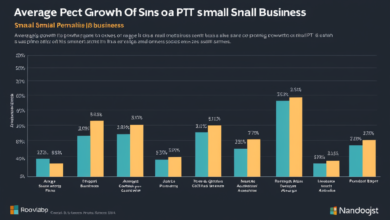Maximizing Efficiency: The Trade Desk For Major Fuel Oil Companies

Introduction
During the global competition in energy sectors. Major fuel oil companies have been employing trade desk for major fuel oil companies aiming. At achieving efficiency in the fuel operations and also enhancing profitability. These platforms have emerged as critical in dealing with risks associated with market fluctuation. In executing transactions and in decision making processes. Companies have to realize that the right trade desk helps. Them leverage such threats and position themselves as winners in a rapidly evolving oil business environment.
Do you want to learn about what trade desk for major fuel oil companies look like. How they are reshaping the fuel oil sector? Find out the navigator with which your enterprise can reach for the sky.
It is thus imperative that trade desks are not simply a trading function. They are the support for core activities of significant fuel oil organizations. These platforms help to accumulate all data, provide the insights in real time, and allow for the fast response to the changes occurring in the market to guarantee businesses remain competitive in the constantly growing sophisticated environment.
Driving Market Strategy Through Advanced Trade Desks
Trade desks have gradually become central to the implementation of market strategies of major fuel oil companies. Such high-profile platforms assist in the identification of real-time data, the prediction of trends, and carrying out trades with requisite accuracy. Thus, the application of analytics becomes relevant because the company can make relevant decisions that would allow for long-term strategic planning and allow the company to become profitable and sustainable.
Enhancing Operational Efficiency in the Fuel Oil Sector
Thus, operational efficiency is the key in the fuel oil industry. Where the profit margin and the situations in the market may vary. Trade desk for major fuel oil companies also help in getting rid of several manual hassles and enhance the transaction speeds without errors. This way, not only do costs reduce but resources are also available to be directed on more essential areas of interest, hence making the whole process more adaptive to market forces.
Leveraging Data for Competitive Advantage
Trade desks are the means through which such valuable commodities are consumed in the contemporary energy industry: data. Every large fuel oil company engages with the trade desks to gather, process and respond to terabytes of information from different sources. It enables them to forecast market developments, establish strategic pricing models and control risks hence placing them in a vantage point within this highly contested market.
Navigating Market Volatility with Precision
In regards to the fuel oil market, there are many variables that influence the prices and it can be very unpredictable at times. Trade desks assist firms to overcome this problem through offering current market information and other risk management mechanisms at their disposal. These capabilities enable fuel oil companies to mitigate such risks, modify their trading approaches when it is necessary and preserve their net revenues in the most unfavorable conditions.
Building a Future-Ready Trade Desk Infrastructure
Many components of the fuel oil industry are constantly changing and so are the trade desks that foster it. Large organizations are deploying technologies such as “Artificial Intelligence” and “Machine learning” in their trade desk. All these developments help decide the future with higher probability. Improve and enhance business continuity, and create invulnerable fundamentals. That are prepared for future market shifts for sustainable success.
- Integration of Advanced Technologies: Some of the emerging technologies used in AI context are to support decision making, increasing accuracy and effectiveness. And optimize the processes using machine learning and blockchain.
- Scalability and Flexibility: The trade desk system was designed that can be easily scalable. The given organization and can easily adapt to the changes in the future markets.
- Enhanced Data Analytics: Exploiting social media to gather large and complex data and then using predictive modeling to analyze. Them for better market knowledge and to foresee trading trends and change/direction.
- Robust Security Measures: Applying the security measures for data protection and guaranteeing the effectiveness of the trades and transactions.
- Sustainable Practices: Integrating environmental and sustainability factors in order to match the trade desk’s structure. As well as the commonly observed new industry trends of going green.
- Training and Skill Development: Training individual employees and staff of the company to ensure they are well conversant with the functional aspects of next gen trade desk systems.
Pros and Cons of Building a Future-Ready Trade Desk Infrastructure
| Pros | Cons |
| Enhanced Decision-Making: Advanced technologies like AI and machine learning provide real-time insights, leading to better and faster decisions. | High Initial Costs: Significant investment is required for technology acquisition and implementation. |
| Scalability and Flexibility: Future-ready infrastructures can easily adapt to market changes, ensuring long-term operational resilience. | Complex Implementation: Integrating advanced technologies can be complex and time-consuming. |
| Improved Risk Management: Enhanced data analytics and predictive tools allow companies to better anticipate and mitigate risks. | Training Requirements: Employees need extensive training to effectively utilize new systems. |
| Increased Efficiency: Automation of routine tasks reduces manual errors and speeds up processes, leading to cost savings and improved productivity. | Cybersecurity Risks: The integration of new technologies can introduce vulnerabilities that require robust security measures. |
| Sustainability Alignment: Future-ready infrastructures can support environmentally sustainable practices, aligning with industry trends. | Ongoing Maintenance Costs: Continuous updates and maintenance are needed to keep the infrastructure up to date. |
| Competitive Advantage: Staying ahead with cutting-edge infrastructure can provide a significant edge over competitors in a volatile market. | Resistance to Change: There may be internal resistance from employees and management, slowing down the adoption of new technologies. |
FAQs
How do trade desk for major fuel oil companies?
Trade desks streamline operations, enhance decision-making, and provide real-time market insights.
What role does data play in trade desk operations?
Data is crucial for making informed decisions and staying competitive in the market.
Can trade desks help mitigate market risks?
Yes, they offer advanced tools for risk management and market analysis.
Why are trade desks essential for operational efficiency?
They automate processes, reduce errors, and speed up transaction times.
What technologies are shaping the future of trade desks?
AI, machine learning, and advanced analytics are key technologies driving trade desk innovation.
Conclusion
Electronic trade desk for major fuel oil companies are redesigning. How the major fuel oil industry works providing solutions for optimization, risk management and dynamic advantage. A development that will be evident as these platforms continually emerge. Is that they will invariably be critical components. The strategies being implemented by firms in the energy industry. In this context, trade desk technologies have to be advanced to guarantee fuel oil companies work profitability. And with great flexibility in the constantly evolving business environment.




